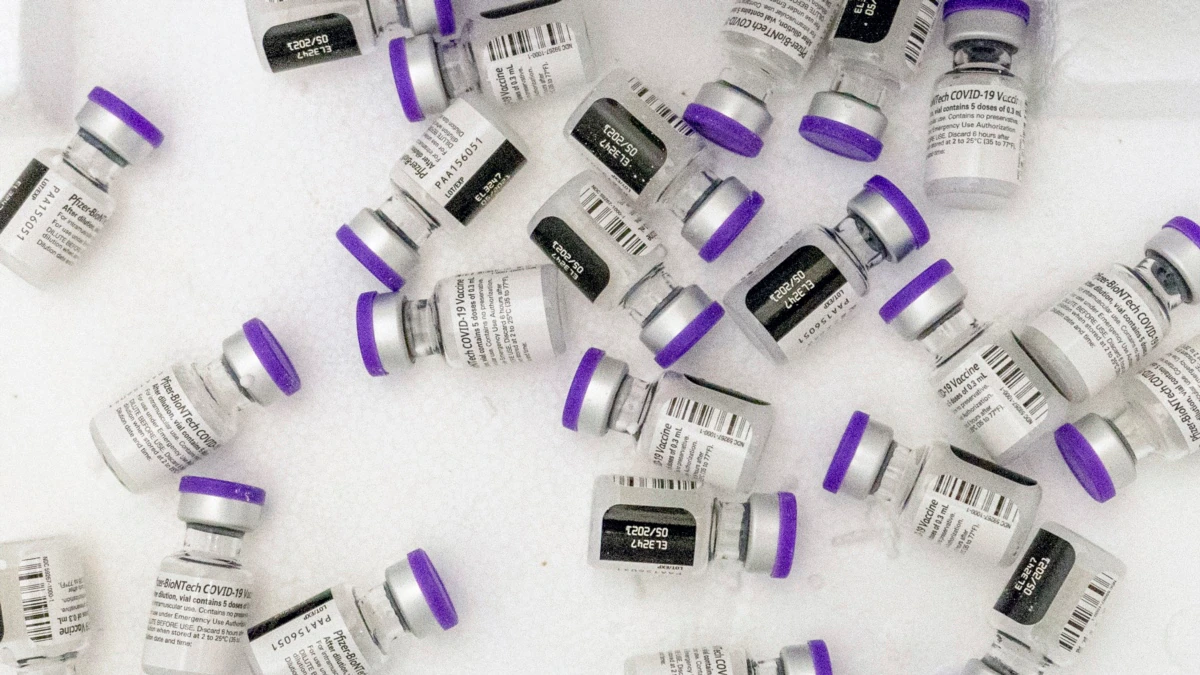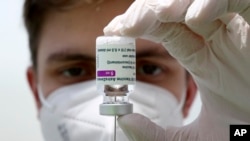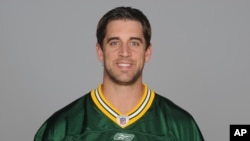U.S.-based drugmaker Pfizer is seeking to make a booster shot of its COVID-19 vaccine available to all adult Americans 18 years of age and older.
Pfizer filed the request Tuesday with the U.S. Food and Drug Administration, citing a new clinical trial involving 10,000 volunteers who received a third injection of the two-dose vaccine, which it developed in collaboration with German-based BioNTech. According to Pfizer, the preliminary results show the third shot boosted a person’s protection against the virus to about 95%.
The request comes just weeks after the FDA and the U.S. Centers for Disease Control and Prevention authorized a third shot of the Pfizer vaccine for Americans 65 and older, adults at a high risk of severe illness, plus front-line workers such as teachers, health care workers and others whose jobs place them at greater risk of contracting COVID-19. The Pfizer booster shot is available for people regardless of whether they initially received the two-shot Moderna vaccine or the single-dose Johnson & Johnson vaccine, which offers less protection than either the Pfizer or Moderna vaccines.
Astra-Zeneca’s separate unit
British-Swedish drugmaker Astra-Zeneca announced Tuesday that it is creating a separate unit entirely devoted to developing and manufacturing COVID-19 vaccines and treatments. The company’s two-shot vaccine, developed in collaboration with the University of Oxford, had a troubled rollout due to manufacturing delays and confirmation of a link between the vaccine and rare, possibly fatal blood clots, prompting some governments to limit its use among certain age groups.
But the AstraZeneca vaccine is cheaper and easier to use because it does not need to be stored at ultra-cold temperatures than either the Pfizer or Moderna vaccines. The vaccine makes up the bulk of the vaccine supply of COVAX, the international vaccine sharing mechanism for the world’s poorest nations supported by the United Nations and the health organizations Gavi and CEPI.
Meanwhile, the current surge of new COVID-19 infections in Germany prompted Dr. Christian Drosten, the head of virology at Berlin’s Charite Hospital, to issue a warning Wednesday that 100,000 people could die if the vaccination rate does not pick up quickly, and that Germany faces “a very tough winter with new shutdown measures.”
Drosten’s warning coincided with an announcement by the country’s Robert Koch Institute of 39,676 new COVID-19 infections across Germany, a new one-day record. Charite Hospital announced Tuesday that it is postponing all non-critical operations due to the growing rate of new COVID-19 patients.
In a related matter, the country’s vaccine advisory committee Wednesday recommended that people 30 years of age and under be vaccinated only with the Pfizer vaccine. The committee cited a higher risk of younger people developing a rare side effect of myocarditis, an inflammation of the heart, from the Moderna vaccine than the Pfizer version.
NFL vaccination
In the U.S. sports world, quarterback Aaron Rodgers of the National Football League’s Green Bay Packers franchise acknowledged “misleading” the public about his vaccination status shortly before the start of the current season.
Rodgers has been under intense criticism since last week’s revelation that he had tested positive for COVID-19, contradicting his earlier claims back in August that he had been “immunized.” Rodgers told radio sports host Pat McAfee after his diagnosis that he had not taken any of the approved vaccines because of concerns about adverse side effects, and instead relied on homeopathic treatments as an alternative.
In a follow-up interview with McAfee Tuesday, Rodgers said he took “full responsibility” for his comments back in August, but also said that he continued to stand by his concerns about the vaccines. He also said he expects to be cleared to rejoin the Packers in time for Sunday’s game against the Seattle Seahawks.
The NFL has fined Rodgers and teammate Allen Lazard $14,650 each for violating the league’s COVID-19 protocols for unvaccinated players when they attended a Halloween party despite their status. The Packers were also fined $300,000 for failing to discipline the players and for not reporting the violations to NFL officials.
Some information for this report came from the Associated Press and Reuters.















































